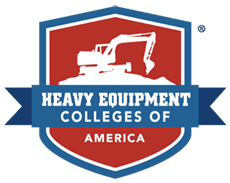Mobile cranes are versatile machines that assist in a wide range of construction jobs. Their flexibility and mobility allow them to navigate unsteady terrain and jobsites that have limited space. Cranes offer maximum project efficiency, but still provide the strength and stability required for the job at hand.
Overall, mobile cranes are a cost-effective solution for construction sites needing to lift heavy materials. Learn more about three types of mobile cranes, and the advantages and disadvantages that come with each.
Become a Successful Mobile Crane Operator
Types of Mobile Cranes
While there are dozens of mobile crane varieties, we’ll take a deeper look into the three most common as well as the advantages and disadvantages of using them on a job.
Crawler Cranes
Crawler cranes, also known as lattice or boom lattice cranes, get their name from the tracks that provide mobility. These tracks provide enough stability for the crane that they do not require outriggers.
Pros:
- Can lift an excess of 2,500 tons
- Mobility on a variety of surface types
- Uses a single engine
Cons:
- Require on-site assembly
Hard to move between job sites - Cannot drive on a road
Rough Terrain Cranes
Rough terrain cranes are designed to operate on a variety of off-road terrain. From mud to snow and everything in between, rough terrain cranes use their rubber tires to operate on challenging surfaces.
Pros:
- More mobility
- More stability
- Greater control
Cons:
- Cannot be driven on roads
- The boom positioning is lower and can impede the driver’s view
Truck Cranes
A truck crane, or a truck-mounted crane, has a boom mounted to the bed of the truck. This type of crane is smaller and used for lighter loads.
Pros:
- Road legal
- Easy to maneuver and flexible
- Easy to transport materials
Cons:
- Have a limit of about 45 tons
- Can work small jobs only
Operating a Crane
If you’re looking for a rewarding and fulfilling job that’s not an average 9-5, becoming a heavy equipment operator might be in your future. According to the U.S. Bureau of Labor Statistics, equipment operators will grow 5% from 2020 to 2030 and gain 51,500 jobs per year, and earn an average of $49,100/year.
Crane operators are essential to construction sites. In addition to operating the cranes that make construction sites operate smoothly, operators are responsible for routine maintenance and inspections, assembling and disassembling, and transporting. The versatility of mobile cranes make them a central part of many industries, from construction to mining, transport, cargo, and public utilities.
No posts found!
Crane Safety
Proper training can make the difference between a safe work environment and an unsafe one. Crane operator certification can train the proper safety measures, enhance equipment safety, and reduce the risk of workplace accidents.
Be Set For Success With Crane Operator Training
Be fully prepared for the future by attending mobile crane operation training from HEC. When you take the Certificate of Heavy Equipment Operations — Mobile Crane training, you’ll learn the fundamentals of crane operation with skills like set-up, rigging, signaling, lift planning, and load dynamics. The experienced instructors provide both textbook and practical knowledge so you’re best prepared for future work.
HEC’s accelerated program can be completed in as quickly as three weeks and is offered at locations across the country. Find the location nearest you to lay the groundwork for your future career.
Call (888) 414-0285 with any questions or enroll online now.
